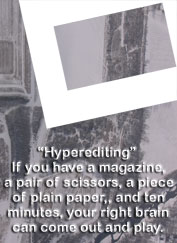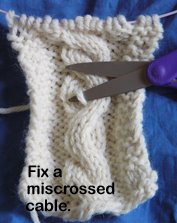.
Another spectacularly nice day.
The University retirees' association has regular meetings during the school year, with programs. On the 13th, an ophthalmologist with an interest in art history came to speak about artists with eye/vision issues. James Ravin (author of The Artist's Eyes), talked about Monet's and Cassatt's cataracts. (Did you know that cataract surgery has been performed "for thousands of years"? I didn't. Apparently they did it in ancient India...... Scary. Things better now than yesteryear? OH yeah..................)
He also talked about Degas, who probably had macular degeneration (for which nothing could be done then, and not much can be done now).
He showed images from artists' careers, before and after their eyes failed. It was very interesting. The work was, as you might guess, much looser once they couldn't see clearly. In some cases (Monet in particular), the colors also changed (as he wasn't able to see color very well for many years). Monet had his bad eye (the one that could only see light and dark) operated on for cataract. Afterward, with glasses with a thick lens, his vision was 20/30. Pretty amazing.
This allowed him to do the water-lily series that is now in the Orangerie in Paris.
Ravin also talked about various artists for whom there is no documentation of eye issues -- van Gogh, Picasso, and Chuck Close, among others. Ravin was very clear about only laying artistic effects at the feet of eye disease if there was documentation (in letters, or doctors' records) of same. If there was no corroborating evidence, he said so. In fact, there are records that show van Gogh's eyes were checked, with no findings of abnormality in vision or color perception.... Chuck Close, too, has made stylistic choices which are not a reflection of difficulties with vision.
It was an interesting talk, and I'm glad I went.
Looking east from the motel where the meeting occurred....
On the way home I stopped at Staples. Taking copious notes for my Model Thinking class results in a lot of material to make sense of. I was thinking of that sense-making as an ordeal, until I thought of acquiring stick-on "flags" to mark different kinds of sections, and high-lighters to mark the pages within sections. Then it began to sound rather fun to go back and add lots of color (and aids to finding and remembering info).
I'm all for having fun rather than enduring ordeals! !!!
I found composition books (in one of which I have been taking my notes) and spiral binders and post-it-style "flags" on sale at Staples. Yay. I decided to forgo highlighters and use colored pencils (which I already have and which won't bleed through to the other side of the page).
When I got home, my better half was there. He plays bridge most Thursday evenings, so he often comes home earlier on Thursdays than other days. We walked my usual mile loop, encountering this maple leaf.
I'd always thought these black spots on maple leaves were a sign of a wet summer. I guess not.
I don't usually like damage to plants as anything to photograph, but these spots are so dramatic.............
Note how I tastefully arranged the leaf within the darkest bits of sidewalk.......
That evening I watched the last video of this week's Model Thinking set. I am discovering that the algebra I need to use is not available the way I had hoped it would be.
I was so pleased to discover the French I hadn't used for 40 years was there, still, in 2010 when I went to France. My high-school and college French is in the third basement of my memory, I guess. The memory elves who hunt down dusty old info took some time to dredge up the words and phrases I needed. But the French was there. Buried, but (eventually) accessible.
The high-school algebra I need for Model Thinking? Not so much.
I know I used to be able to move things around, to solve for P, but I do not remember how to do it, when there are parentheses and multiplications and divisions and so on, all happening in the mix. I'm sure I did know, but I certainly do not know now. I remember that you could multiply things by other things (or divide), to get things out so you could move them from here to there, but I surely do not remember what the rules are..... Unlike French grammar, which is still buried somewhere in my memory (and which is still accessible), if the "grammar" of algebra is there at all, it must be in the fifth or sixth basement, all moldy and disintegrated due to flooding. Or something.
Luckily my better half, who triple-majored in math/stats/computer-science, does remember. Once we find a time when he is not at work, playing bridge, or playing golf, I will get a refresher course!
.
Subscribe to:
Post Comments (Atom)



















No comments:
Post a Comment